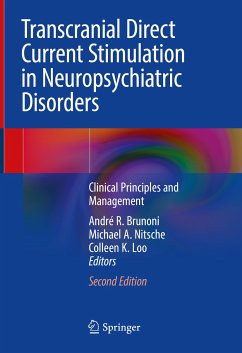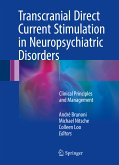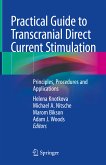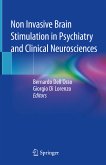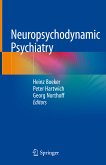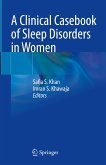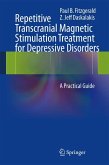tDCS is a technique that excels in terms of safety and tolerability, and within a few years, novel technological developments will allow its use at home. At the same time, large, phase III trials have been exploring the clinical efficacy of tDCS, the results of which have been published in leading journals such as the New England Journal of Medicine and JAMA Psychiatry.
This 2nd edition summarizes the state of the art of the field. Written by leading experts in the field, the book is divided into 5 parts: Introduction and Mechanisms of Action; Research Methods; tDCS in the life cycle; Applications of tDCS in neuropsychiatric disorders (further divided into Psychiatry and Neurology); and The clinical use of tDCS.
It also includes several new chapters, covering topics such as precision stimulation of tDCS; combination of tDCS with different neuroimaging modalities; and use of tDCS in new clinical conditions. Moreover, all chapters have been rewritten and updated.
This book is of interest to psychiatrists, neurologists and neuroscientists new to the field as well as those with a background in tDCS who want to increase their understanding of particular psychiatric conditions.
Dieser Download kann aus rechtlichen Gründen nur mit Rechnungsadresse in A, B, BG, CY, CZ, D, DK, EW, E, FIN, F, GR, HR, H, IRL, I, LT, L, LR, M, NL, PL, P, R, S, SLO, SK ausgeliefert werden.

